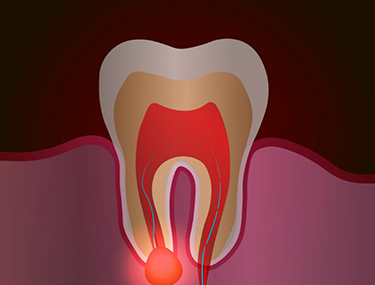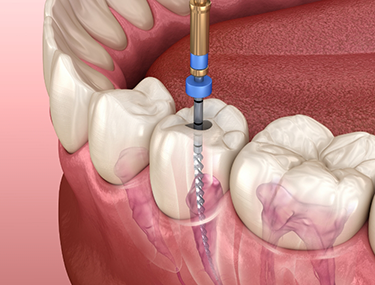Root Canal Treatment Ridgefield
Treat Toothaches and Save Your Smile

When you have a toothache, it can feel impossible to accomplish any other tasks on your to-do list. Going to work can feel like a nightmare, and once you get home, you simply cannot relax. If you’re suffering from tooth pain or notice other symptoms (i.e., swelling, fever, or gray discoloration of your tooth) don’t hesitate to contact us to schedule an appointment. We may be able to treat your toothache and save your smile right away with root canal treatment.
Why Choose Ridgefield Perfect Smile Center for Root Canal Treatment?
- Dentists with Decades of Proven Experience
- Dental Team Prioritizes Your Comfort & Safety
- CBCT Scanner Produces High-Resolution Images for Precise Results
Signs You Need Root Canal Treatment

If you’re experiencing tooth pain, it could be caused by decay reaching the inner area of your tooth where vulnerable pulp and nerve tissue sit. However, those who have an infection inside their root canal need treatment to break it down and remove it. The nerve is responsible for alerting you when something inside your tooth is wrong, which is why the most common symptoms of needing a root canal include pain, pressure, or sensitivity to extreme temperatures. Without treatment, you run the risk of the infection spreading to other areas of your mouth and even your brain, so you don’t want to put off treatment if there’s an oral infection present.
The Root Canal Treatment Process

After performing X-rays and confirming that an infection is present, we’ll prepare your tooth for treatment by administering a local anesthetic. Then, we’ll create a small access hole in the top portion of your tooth to reach the pulp. Next, we’ll begin clearing away infected tissue and shape the root canal. This is followed by irrigation to clear away any residual infected tissue and make room for gutta-percha placement. Gutta-percha is a rubber-like material designed to replace lost tissue and reduce the risk of future infections. Finally, a temporary crown seals your tooth, while a permanent crown is made and placed at a later date, typically in about two weeks.
Does a Root Canal Hurt?

Thanks to the local anesthetic administered by the dentist, patients should feel no more discomfort during their treatment than what they would feel during a dental filling placement. The myth that root canals cause pain derives from the discomfort felt beforehand when the infection is present and afterward when the surgery is complete. However, mild soreness is typical for just about any oral surgery, not exclusively root canal therapy.
Recovering from Root Canal Treatment

You’ll need to make sure you follow the necessary aftercare steps as prescribed by our dentists to ensure a speedy recovery. Over the next 24 hours, these steps should include:
- Getting plenty of rest over the next 24 hours
- Taking over-the-counter painkillers to mitigate any discomfort
- Avoiding the use of straws to prevent accidentally dislodging the temporary crown
As you wait for your permanent tooth to be created, you’ll need to practice daily oral care as normal and minimize chewing on the affected tooth.

